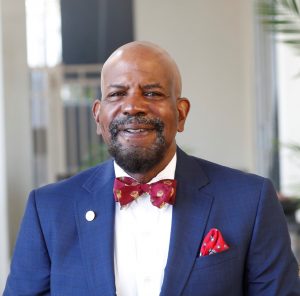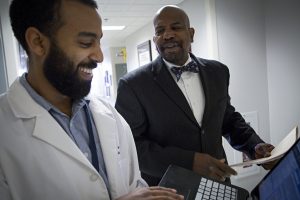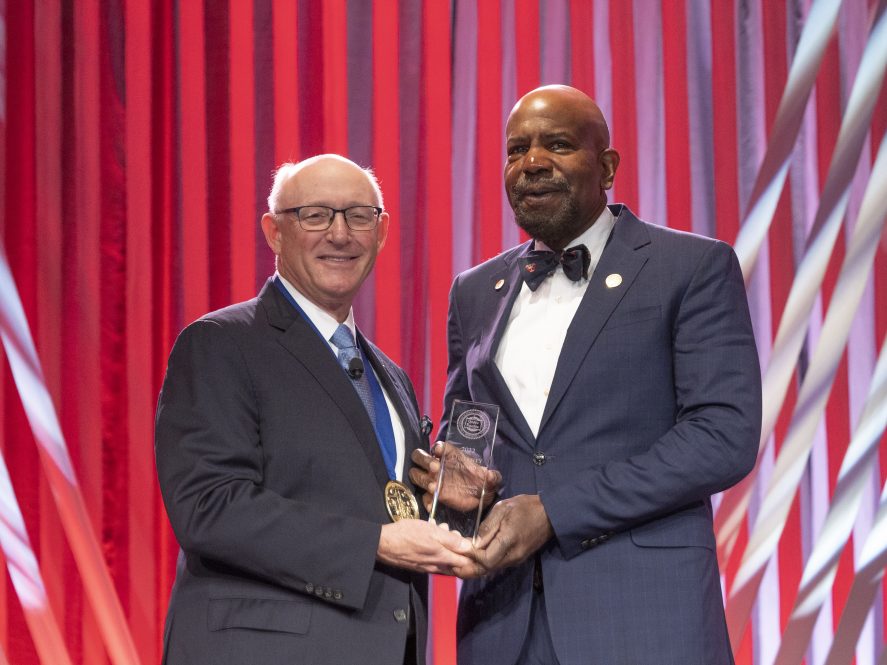The American Academy of Orthopaedic Surgeons (AAOS) presented its 2022 Diversity Award to Cato T. Laurencin, MD, PhD, FAAOS of the University of Connecticut. The Diversity Award recognizes members of the AAOS who have distinguished themselves through their outstanding commitment to making orthopaedics more representative of, and accessible to, diverse patient populations.
“I am very proud to receive this award,” said Laurencin of UConn. He is University Professor and the Albert and Wilda Van Dusen Distinguished Professor of Orthopaedic Surgery at UConn School of Medicine. “It recognizes my longstanding work promoting racial justice and equity, and gender equity in the profession and worldwide.”

The sum of those affected by Laurencin’s mentorship and work is immeasurable, according to MaCalus V. Hogan, MD, MBA, FAAOS, from the University of Pittsburgh McGowan Institute for Regenerative Medicine. Laurencin’s 40 years of work promoting racial and gender diversity has spanned the realms of science, technology, engineering, and mathematics and resulted in the establishment of programs that are poised to diversify the field of orthopaedic surgery and medicine in general for generations to come.
“Dr. Laurencin has been a torch bearer for diversity, lighting the path into this field that we all hold so dear, and he has done it for so many who otherwise may not have considered, seen, or have had the opportunity to be part of this great profession,” said Hogan.
Laurencin’s efforts began in the 1980s at Harvard and the Massachusetts Institute of Technology, where he was assistant director of the Harvard Summer Health Professions Program, which trained Black, Indigenous, and People of Color (BIPOC) students. His efforts continued at Allegheny University and Drexel University where, as a professor of orthopaedic surgery, he funded and supported scholarships for Black and Latino women students.
Soon thereafter, Laurencin became chairman of orthopaedic surgery at the University of Virginia. He was the first Black surgeon and only the second Black chair in the history of the university. Some of Laurencin’s most significant contributions to diversifying the field occurred during his tenure as chairman, according to Hogan. During this time, Laurencin acted with intent in the recruitment of BIPOC and women into the residency training program and faculty.

“Dr. Laurencin was the driving force behind improving and taking this department to be one of the top programs in the country both on a clinical and research level,” Hogan said. “His department was going to be a department that represented and reflected the diversity of the world we live in and was completely inclusive of all.”
Under Laurencin’s leadership, the number of BIPOC student applicants for externship orthopaedic surgery rotations rose exponentially, along with the number of applicants and interviews for orthopaedic surgery rotations. With more than 50% Blacks, Latinos, and women, the orthopaedic surgery program set a standard for other residency programs within the university — and nationwide.
Laurencin is also CEO of The Connecticut Convergence Institute for Translation in Regenerative Engineering at UConn Health and professor of chemical engineering, materials science and engineering, and biomedical engineering at UConn.



